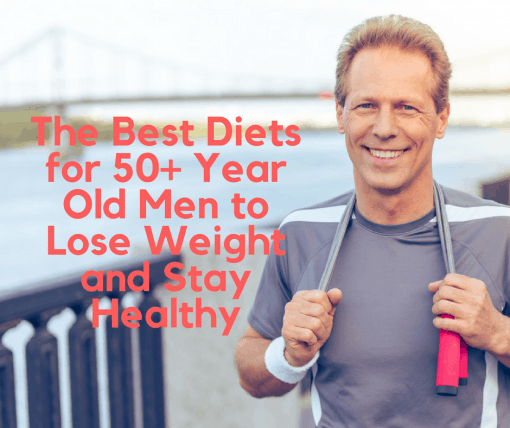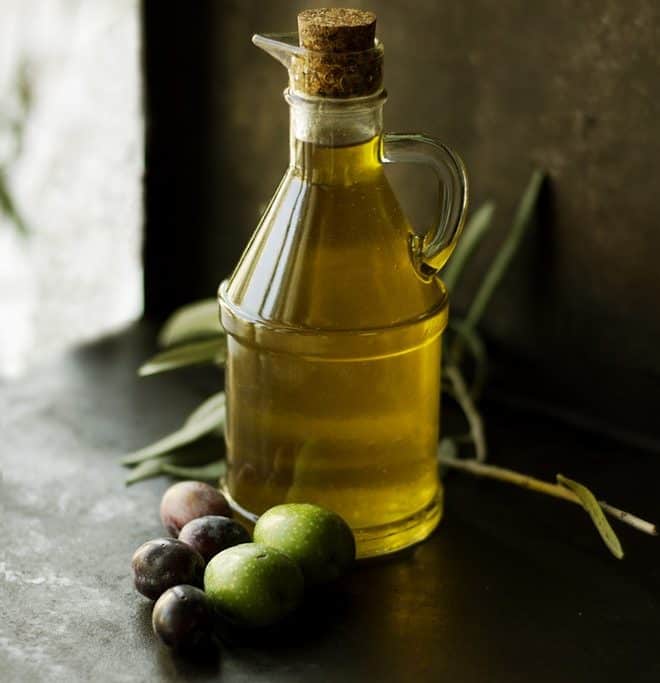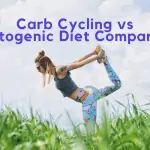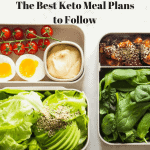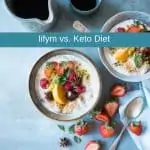Men who have reached the age of 50 should pay special attention to their diet because they have distinct nutritional concerns to address. Problems like decreased metabolism, a lower level of testosterone, gout cancer, prostate cancer, and cardiovascular diseases are serious and very possible risks at this age. It doesn’t really matter if you want to lose weight and achieve a slimmer figure, gain a few extra pounds, or simply stay healthy. No matter what, experts recommend you to lower your calorie intake and consume significantly less cholesterol.
Below, I have listed and detailed some of the best diets for 50+ year-old men. Not only will these eating systems help you lose weight but they will also aid you when it comes to your general health and well-being.
Topic Contents
The Most Effective Diets for Men Over 50 Years Old – Top 4 Choices
1. Weight Loss Diet
As you age, your metabolic rate slows down. This issue can make the weight-loss process quite challenging so you won’t shed those extra pounds as quickly as you did when you were in your twenties or thirties. One of the most effective weight-loss diets for men who are over 50 is a calorie-restricted one. This means you must decrease your calorie intake.
First of all, see what exactly you eat every day. Then, when you need to find out the average daily calorie intake, you can start reducing it little by little. Let’s say you consume around 2800-3000 calories per day. Try to lower it by a minimum of 500 calories. The higher your calorie consumption is, the more you have to lower it.
It is true that achieving a fitness goal at 50 years old can be difficult but it is not impossible. First and foremost, eliminate all junk foods. This action alone should help you lose 1-2 pounds per week. Moreover, it helps you avoid ingesting bad fats which can later translate into cardiovascular health conditions.
Another thing you can do in case the advice presented above doesn’t satisfy you is downsizing your mealtime portions in order to reach your targeted calorie objectives.
2. Muscle Building Diet
After the age of 50, besides metabolism, your testosterone level will also be reduced so it will become harder and harder to build lean muscle mass as long as you maintain the same calorie and protein intake as you used to eat in your youth. Ideally, you should create and customize your own personal eating plan that totals a number of 2500-2800 calories per day. Make sure to have five daily meals and include plenty of foods that are rich in protein such as fish, eggs, lean meat, beans, and tofu.
Given your slightly slower metabolism, a maximum of 2800 calories per day will be more than enough for muscle growth. The important thing is to pay attention to the way you construct your meals and do your best to build around food items that are high in protein, as mentioned above. On the other hand, try to avoid red meat because it contains too much cholesterol and this can be harmful particularly to someone who is over 50.
Finally, focus on high-quality proteins but don’t overdo it! You can easily calculate your necessary daily intake by associating one gram of protein per body weight kilogram. So, if your weight is 75 kg, you will only need to consume 75 g of protein per day.
3. General Health Diet
To increase your lifespan while also maintain a healthy body, you need to follow a healthy and well-balanced diet. For example, according to doctors and health specialists, men in their fifties should pay a closer attention to their overall well-being, with a special focus on bowel and prostate health. Although the best you can do is to check these potential issues with your physician, on a regular basis, you can also prevent certain disease by consuming specific foods.
An eating plan that is rich in whole grains, fruits, vegetables, legumes, and fiber bran-based cereals can help you prevent bowel health problems. As for a healthy prostate, you need to include a wide variety of brightly-colored fruits in your daily eating habits. Some of the best items are green leaves, cucumbers, carrots, tomatoes, and peppers.
Depending on your body’s measurements such as weight and height, you will need certain quantities of each foot category: veggies, whole grains, and fruits. Meanwhile, lower the sugar intake while also consuming fewer fats and red meat. No matter if you just want to adjust your present diet or build an entirely new one from scratch, you can always seek help and useful information in the nutrition-related guidelines provided by the U.S.D.A. (the Department of Agriculture). On their website, you will find important details regarding portion sizes and food groups.
4. The Mediterranean Diet
Unfortunately, once we reach the wonderful yet vulnerable age of 50, our organisms get weaker and the risk of certain health conditions like heart disease tends to increase. To prevent or completely avoid that, you should give the Mediterranean diet a try. Studies have shown that individuals who follow this particular eating system experience lower and less powerful symptoms of Alzheimer’s or Parkinson’s diseases. Furthermore, the Mediterranean diet lowers the risk of many types of cancers.
When it comes to this type of diet, most of the food items included in it are plant-based ones such as vegetables, fruits, whole grains, legumes, seeds, and nuts. For starters, you must use organic or unprocessed olive oil as your primary healthy fat source. You will be allowed to eat red meat only a couple of times each month. Instead, you will focus more on fish which will become your main source of protein. Besides fish, you can also eat eggs, chicken, or low-fat dairy products but only in moderation.
Research has proved that the Mediterranean diet improves the way your brain functions, lowers the risk of heart conditions, and it might even eliminate one’s need for reflux medications altogether. Also, it is shown to slow down your body’s aging process by lowering inflammation. Those of you who deal with bone health issues should definitely opt for this diet because it may reduce the bone loss rate.
What Should Your Diet Plan Include?
Lower Calorie Consumption
If you have an active lifestyle, you can consume around 2500 calories per day. Still, if you’re more of a sedentary person, try not to exceed 2000 calories. On the other hand, if you want to truly lose weight, you must decrease calorie intake even more or increase the intensity of your physical activities. If you want to find the best diet plan for you, check here..
Healthy Eating
Fruits, vegetables, nonfat dairy products, lean protein, nuts, seeds, and whole grains should always be included in your daily diet. You must eat 2 portions of fruits as well as 3 vegetable portions each day to maintain a healthy body and lose weight. Don’t forget about healthy fat but make sure not to consume more than 30% of your total daily calorie intake. You are allowed to eat small amounts of butter and whole dairy products but you must substitute fatty steaks with fish, olive oil, and nuts.
Regular Exercise
If you want to burn fat, I recommend you to concentrate on cardio or aerobic exercises mostly. Aerobic workouts will make your body burn fat even one hour after you complete the actual routine. If you want to build more muscle mass, you need to engage in weight-training exercises. Over the age of 50, our muscle mass starts to decrease so we must counteract this issue with proper exercise.
Simply put, one should work out between 30 and 60 minutes for at least three times per week. Body strength-training routines are some of the most effective exercises that will help you lose weight. Among these, there are the following ones: isometrics, yoga, and weight training.
Good-Quality Sleep
A good sleep has the power to recharge both your body and mind which can help you lose weight a lot easier. A deep sleep translates into greater weight loss but it must last around 8-9 hours each night. However, it is normal for our sleeping patterns to change during the aging process. More people find it difficult to fall asleep when they go to bed at night or they tend to wake up several times throughout the night.
Instead of taking all kinds of medications, you could simply avoid caffeine before bed, try not to nap during the day, don’t exercises too late in the afternoon, and don’t use gadgets or watch TV right before bedtime.
What Exactly Should You Eat?
Colored Vegetables and Leafy Greens
Yes, vegetables are not only healthy and recommended for little kids but also for grown-ups as well. These foods are full of antioxidants which provide a large array of health benefits. For once, greens work great for your hair and bones. So, make sure to include cabbage, bell peppers, and spinach in your daily diet but don’t forget about colorful vegetables like carrots and pumpkins also.
Fresh Organic Fruits
Fruits come with a lot of fiber and antioxidants. Eat them as part of a healthy breakfast to receive an energy boost and kick-start your day. Wash the fruits well but keep their peels because these are rich in vitamins and fiber. Some of the best fruits you should consume are apples, berries, and oranges.
Low-Fat Dairy Products
As you grow older, your bones tend to lose their strength. Therefore, you need to increase the calcium intake and what better way to do that than consuming dairy products. You might think that osteoporosis is a condition that affects mostly women and while that is partly true, many men deal with this health issue as well. To avoid bone fractures you should moderately consume cheese, milk, cottage cheese, and yogurt. Don’t worry if you’re intolerant to milk because you can easily opt for soy milk.
Whole Grains
Whole grains contain an excellent amount of dietary fiber which lowers blood cholesterol levels and it can reduce the risk of certain diseases such as obesity, heart issues, and type 2 diabetes. Moreover, fiber is essential if you want to have a proper bowel function. Whole grains offer a lot of health benefits and they help you lose weight. They also aid digestion, lower blood pressure, redistribute fat and make you feel full for a longer period.
Still, you should act with caution when it comes to consuming a high amount of whole grains. If you want to avoid an upset stomach, you should increase your fiber intake gradually.
Healthy Fats
I am about to tell you a secret: moderation is key to good health. I bet you did not know that, hehe! In fact, eliminating fats completely will not do the trick if you want to lose weight while also maintaining your health. A small amount of fat consumed every day will bring your organism some of the essential nutrients it needs so much. Use olive oil instead of other cooking fats and make sure not to overheat it. Add less oil when you steam or roast your foods to prepare your meals.
Foods Rich in Protein
Lean meat, eggs, fish, seeds, and nuts are all amazing protein sources. Studies have proven that fish is packed with Omega 3 fatty acids which are great for your heart. If you’re a vegetarian, you can easily opt for nuts which are filled with vitamin E.
Bottom Line
Once you reach and exceed the 50-year milestone, things might become a little bit more difficult than they used to be in terms of maintaining a healthy and slim body. Still, the process remains simple. All you have to do is eat more raw foods, reduce processed food consumption, limit salt intake, eat enough calcium, and drink plenty of water.
Find out your optimal daily calorie count, and make sure to split it into 5 different meals throughout the day. Consume enough protein, especially at breakfast, avoid refined sugar, and stay physically active. If you do all these things, you’re about to experience your golden years.
Medical Review Comments from Dr. Robin Walsh, BASc, ND
Disclaimer
Last updated: December 16, 2019
The information contained on www.altprotein.com website (the “Service”) is for general information purposes only.
Alt Protein assumes no responsibility for errors or omissions in the contents on the Service.
In no event shall Alt Protein be liable for any special, direct, indirect, consequential, or incidental damages or any damages whatsoever, whether in an action of contract, negligence or other arising out of or in connection with the use of the Service or the contents of the Service. Alt Protein reserves the right to make additions, deletions, or modification to the contents on the Service at any time without prior notice.
Alt Protein does not warrant that the Service is free of viruses or other harmful components.
Fitness disclaimer
The Service offers health, fitness and nutritional information and is designed for educational purposes only. You should not rely on this information as a substitute for, nor does it replace, professional medical advice, diagnosis, or treatment. If you have any concerns or questions about your health, you should always consult with a physician or other health-care professional.
Do not disregard, avoid or delay obtaining medical or health-related advice from your health-care professional because of something you may have read on the Service. The use of any information provided on the Service is solely at your own risk.
You can also review our Editorial Integrity Policy.
Alt Protein Team is a team of professionals and enthusiasts committed to bringing you the most up-to-date information on alternative protein, health and wellness, workouts, and all things health-related. We’ve reviewed a lot of products and services so you don’t have to guess when you spend your hard-earned money on them. Whether you want to shed some pounds, build lean muscle or bulk, we can help you figure out what you need to do and what you need to have to achieve your goals.

